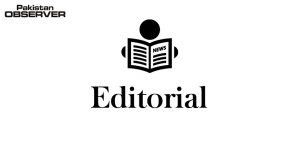PRIME Minister Imran Khan has emphasized that three years of the PTI Government are an economic success story as it inherited huge circular debt, anti-export policies, unsustainable fiscal conditions, less competitive business environment and policies of lack of incentive for the private sector.
Chairing a meeting of the Macro Economic Advisory Group in Islamabad, he said despite worst balance of payments crisis in the history of Pakistan in 2018, economic difficulties due to COVID-19, high commodity prices in the global market and humanitarian crisis in Afghanistan having direct and indirect impact on Pakistan, the growth is still expected to be above 4pc which is a huge achievement.
Ever since assumption of power in 2018, the Prime Minister has been making sincere efforts to improve economic conditions of the country and in this regard he not only inducted the best possible brains in his economic team but also hired prominent experts from the private sector to render economic advice.
Imran Khan is, perhaps, the first chief executive in the otherwise checkered history of the country, who did not care about political fallout of the hard, tough and bitter financial and economic measures throughout his tenure and as a result the situation has started improving visibly.
An indication to this was the latest report of the Securities and Exchange Commission of Pakistan (SECP), which stated that aggregate profits after tax of companies falling in KSE 100 Index for quarter three of the current year 2021, stood at Rs258 billion, highest in the last 10 years.
There were, of course, sound policies and measures behind this significant achievement as 12 of the 14 administered legislations were reviewed and simplified besides introduction of much needed improvement to empower business growth, through rationalizing and streamlining requirements, leading to renewed interest in capital markets, NBFCs (non-bank financial companies), insurance and corporate sector.
It was because of reforms that Pakistan Stock Exchange (PSX) witnessed record trading volumes in 10 years.
Since July 2018, it witnessed 109 percent and 57% increase in average trade daily volume and value, in the ready market respectively.
The Government prudently handled the situation arising out of the rapid spread of Covid-19 and its strategy helped save millions from starvation.
Exports remained stagnant for many years and credit goes to the present Government, especially Advisor to the Prime Minister on Commerce, Razak Daud, for 25% substantial increase in exports, which are likely to touch the figure of 40 billion dollars.
Tax revenues were also record high with an increase of 38pc and remittances increased by 27pc.
The Government is also legitimately taking credit for achievements in the agriculture sector that saw record incomes (Rs1,100 billion additional transfers to farmers), record high profits of Rs950 billion by industries, boom in IT sector due to government’s IT policy and reduction in monthly circular debt after successful IPP tariff agreements.
In addition to this, the government has launched the biggest social safety program under Ehsaas, brought institutional reforms and successfully complied with FATF’s conditions which saved Pakistan from going into the blacklist.
These facts and figures are appreciable and fully understood by the people but the Government must realize that the trickledown effect of these achievements was not visible.
The real test of the success of any policy or programme is its relevance to the people and despite economic success stories the plight of the people has deteriorated and not improved.
The Government believes its economic successes are not properly highlighted by the media, ignoring that price-hike is undermining these achievements and lack of developmental activities is depriving people of the employment opportunities.
How can the overall image improve when, as per Labour Force Survey, graduate unemployment is touching alarming proportions – over 31% of the youth with degrees, including professional ones, are unemployed with females at 51% and males at 16%.
Latest reports also indicate that Pakistan lost textile exports of $250 million in December 2021 alone due to shortage of gas that forced the sector to close for 15 days in Punjab.
Trade deficit is also ballooning due to unchecked imports and rupee-dollar parity is playing havoc with the economy but no measures are in sight to stabilize the currency despite acknowledgement by the Finance Minister that the rupee was over-valued.
These issues need urgent attention of the Prime Minister and his economic team and their resolution would automatically help improve the overall image of the Government.










